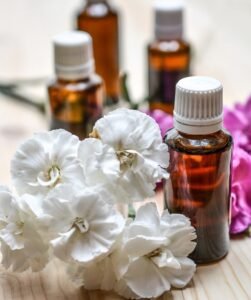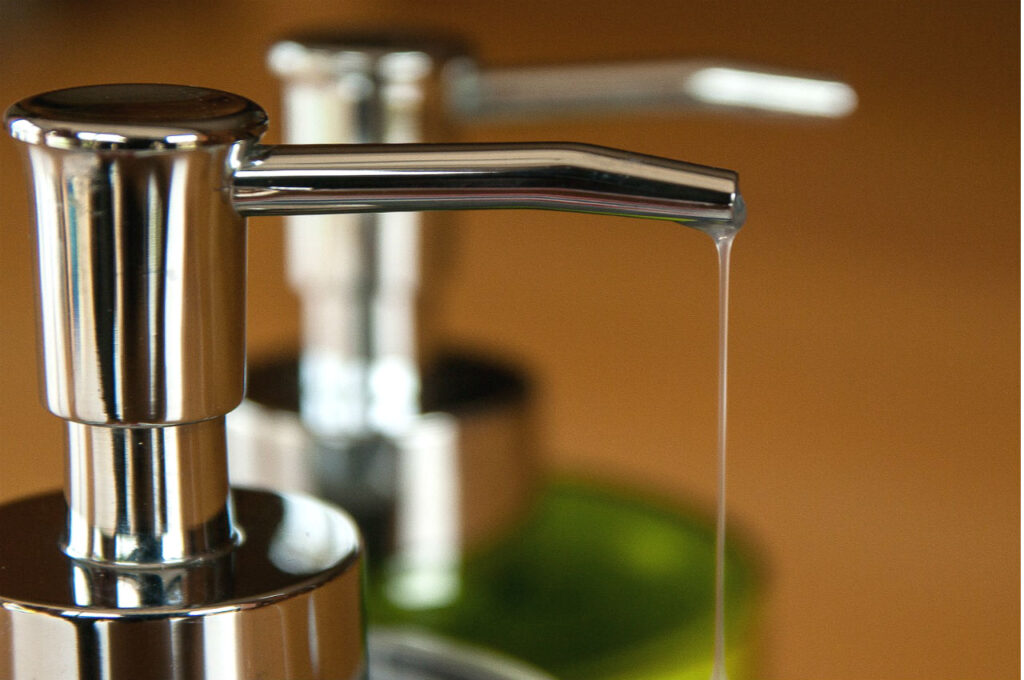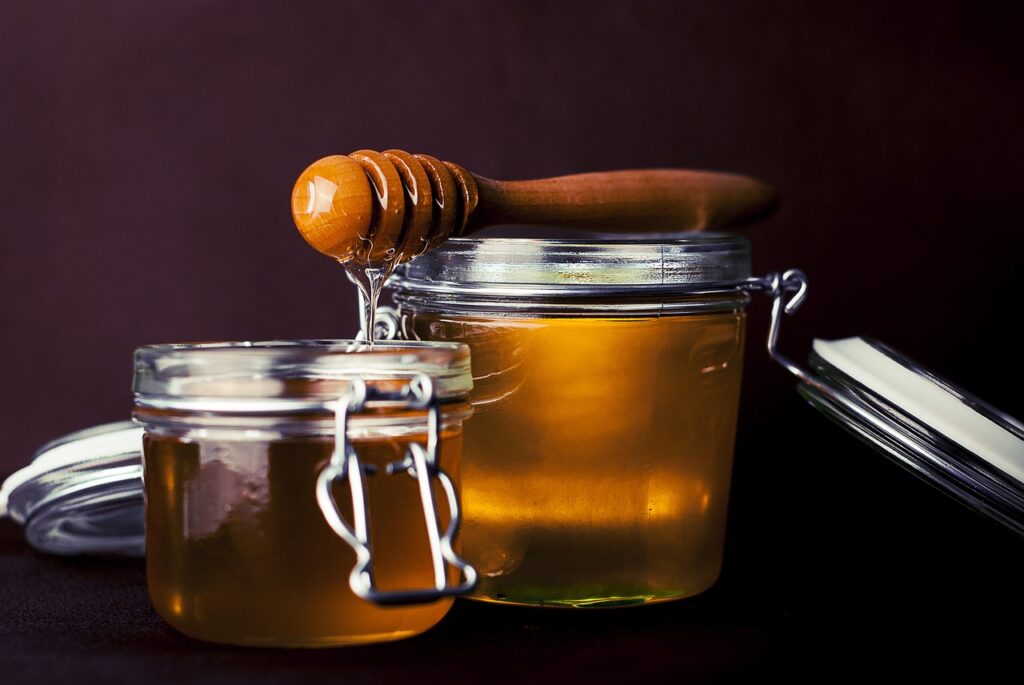Quick and Easy Homemade Face Wash
If you’re like many of us, you probably enjoy a good shopping trip. The trouble is that finding personal care products without questionable chemicals keeps getting harder. Plenty of facial cleansers look appealing on the outside, but once you flip the bottle over and read the label, it’s a different story.
- Homemade: So Easy a Cavegirl (or Caveman) Can Do It
- Natural Facial Cleanser: Chamomile Facial Cleanser Recipe
- Natural Facial Cleansers Around the House
- Say No to Chemicals
- Quick and Easy Face Wash FAQs
- How does homemade face wash compare to store-bought cleansers?
- What are the core ingredients for a basic homemade face wash?
- Can I customize my homemade face wash for my skin type?
- How often should I use a homemade face wash?
- How long does a homemade face wash last?
- Do I need a preservative in my homemade face wash?
- How should I store my homemade face wash?
- Is homemade face wash safe for sensitive skin?
- Can a homemade face wash remove makeup?
- Is making my own face wash cost-effective?
- Can I add essential oils to my homemade face wash?
If you’ve ever picked up a cleanser, scanned the ingredients, and immediately thought, “Absolutely not,” you know exactly how frustrating it can be. The good news is you don’t have to rely on what the shelves offer.
There are simple, gentle, and effective alternatives you can make at home with ingredients your skin will actually appreciate.
Homemade: So Easy a Cavegirl (or Caveman) Can Do It
What ingredients do we like seeing on facial cleansers that claim to be all-natural? A simple Google search or a brief perusal of your local natural goods store will reveal an endless list of commonly used natural ingredients.
To List a Few:

- Aloe vera gel
- Essential Oils
- Vitamin E
- Cucumber Juice
- Coconut Oil Variations
- Apricot
- Clay ingredients
- Rose water
- Mint
- Manuka Honey
- Beneficial Herbs
…and the list goes on.
The short list above will reveal that any one of us can easily get our hands on any number of healthy ingredients. Getting the ingredients needed to make face wash your skin loves is quite simple. I know that none of us have ever used harmful chemicals on our skin before (yeah, right), but I cringe at the thought of some of the products I used to use on my face regularly.
There’s no reason to resort to chemicals when natural options are readily available and work better overall.
Natural Facial Cleanser: Chamomile Facial Cleanser Recipe
Did you know that chamomile has been shown to reduce inflammation and dermatitis? Not only is this wonderful little flower great for upset stomachs as a sweetly mild and aromatic tea, but it’s also quite beneficial for skin health. Check out the recipe below from our friends at DIY Natural:
Ingredients:
- 1/4 Cup Liquid Castile Soap
- 1/4 Cup Brewed Organic Chamomile Tea
- 3/4 Teaspoon of Carrier Oil (olive, fractionated coconut, avocado, sweet almond, grapeseed, or any other of your choosing)
- 8 Drops Essential Oil of Your Choice
- Optional – Several Drops of Vitamin E Oil
Mixing Instructions:
To begin, all you’ll have to do is brew a strong cup of chamomile tea.
- Go ahead and set aside 1/4 cup of your brewed tea for the recipe, then enjoy the rest as you mix up the ingredients for your cleanser.
- While the 1/4 cup of tea is cooling down a bit, combine your other ingredients in a small bowl.
- Once your tea cools completely, add it to your mixture.
- Place the cleanser in any container of your choice and label it accordingly.
This gentle face cleanser naturally and gently washes away dirt and debris, leaving your skin clean and moisturized.
Natural Facial Cleansers Around the House
If you’re really in a bind and you don’t have the time or ingredients to make your own facial cleanser, you’d be surprised at what you can use around the house for your cleansing needs.
Who would have thought that facial cleansers could be found in your kitchen? Apple cider vinegar, mayonnaise, bananas, and other random items can be effective as ingredients in natural facial cleansers or used by themselves for optimal skin health. Say goodbye to harsh commercial cleansers; they just aren’t necessary.
Yogurt
Lactic acid exfoliates skin to get rid of dead skin cells. Protein helps to tighten pores and decreases the appearance of wrinkles and fine lines. The good news is that plain yogurt not only encourages healthy digestion but also helps detoxify skin.
Yogurt is rich in these two compounds:
1.) Lactic Acid (an alpha-hydroxy acid)
2.) Protein.
It has inherent benefits for healthier skin. By gently massaging a thin layer of yogurt onto your face, you’ll loosen dirt and makeup. Leave it for a few minutes and rinse off with warm water.
Apple Cider Vinegar
Apple cider vinegar is an excellent toner! Mix one part apple cider vinegar with two cups of water and shake the mixture well. Apply the toner to a clean face with a cotton ball. Let your face dry, and apply your usual moisturizer.
Apple cider vinegar has a pH level of 5.5, which is very close to the ideal pH level for human skin. It is known to restore the pH levels of the skin to prevent clogged pores, soothe breakouts, and keep skin from becoming too dry or too oily.
Raw Honey
It may sound strange, but you can actually use honey for your face (as discussed elsewhere). Raw honey (especially manuka honey) is packed with antibacterial properties that are good for the skin, especially for those who are acne-prone. Raw honey reduces oils and bacteria on the skin while keeping it moisturized.
To clean your face with honey, begin by wetting your face with warm water. Rub your hands together with a small amount of raw honey, then massage it into the skin in a circular motion, covering all areas of the face. For deep pore cleansing, you may optionally leave it on your skin for 5-10 minutes. Once finished, wash it off with warm water and dry it.
Feel free to use raw honey every day because it is milder than soap. You may even add a bit of Vitamin C powder and essential oils to increase the benefits while also creating an aromatic experience.
Bananas
Save some bananas for your next face treatment! Get a medium-sized banana, mash it up until it becomes a smooth paste, and gently apply it to your face and neck. Let it remain on the skin for 10-20 minutes and wash off with cold water.
There are also a number of facial mask recipes you can create with bananas. One simple recipe requires one banana, two tablespoons of honey, and ¼ cup of plain yogurt. Mix the ingredients together, then apply evenly to the entire face. Rinse after 2o minutes.
Oatmeal
You may eat oatmeal for increased fiber intake and healthier digestion. But oatmeal is also great for making you look good on the outside too. Mix ½ cup of hot water and 1/3 cup of oatmeal. Let it settle for 2-3 minutes. Then, put in two tablespoons of honey, two tablespoons of plain yogurt, and one small egg white. Mix them well, and voila.
You now have an oatmeal facial mask. Apply a thin layer of this homemade facial mask and let it sit for about 10 to 15 minutes. Rinse with warm water. It will leave your face feeling smoother and looking better.
Oatmeal is also a very well-known solution for soothing inflamed skin from skin conditions like eczema. If you’re an eczema sufferer or prone to dry skin, grind up some oatmeal and add it to your next bath. Just make sure to clean your tub when you’re finished.
Lastly, check out a homemade soap recipe that contains oatmeal. Or, if you want to add oats to soap made entirely from scratch, you can learn about the soapmaking process here: How to Make Natural Hot Process Soap.
Mayonnaise
Why buy expensive facial creams when you’ve got mayonnaise? Gently spread whole egg mayonnaise on your face and leave it for about 20 minutes. Wipe it off and rinse with cool water. It is an effective, soothing facial mask that leaves your skin feeling supple and clean.
Coconut Oil
We already know that coconut oil is useful for a variety of things, including skin health. It has anti-microbial properties that eliminate dirt and bacteria without stripping your face’s natural moisture-retaining oils. Using coconut oil on your face couldn’t be simpler.
Just massage a very small amount of coconut oil into your face for around 30 seconds, then cover your face with a warm towel to open your pores and clear them of debris. Remove the towel after 15-30 seconds, then gently pat your face with a wet washcloth to remove excess oil. Once finished, pat dry.
Olive Oil
This oil has helpful antioxidants and fats that help reduce free radicals and moisturize dry skin. It also helps relieve sunburn and irritated skin. For olive oil night cream, combine ½ cup of olive oil, ¼ cup of water, and ¼ cup of vinegar. It will also help to lighten dark spots and clear clogged pores.
Other Natural Oils
Is your face prone to acne breakouts? Among the many natural solutions for acne-prone skin, you may want to try any variety of natural oils. Many natural oils are also high in polyphenols (natural anti-inflammatories).
Also, be sure to use oil rich in linoleic acid. After all, studies show that acne sufferers have low levels of linoleic acid in their skin surface lipids (source). Examples of these kinds of natural oils are safflower, rosehip, and hemp oils. Grapeseed oil and safflower regulate your skin’s natural oil balance, especially if you have problems with acne.
If you’re not prone to acne, use fatty acids and high oleic oils such as avocado oil and almond oil to nourish your skin and fight premature aging. Using your fingertips, apply a small amount of the natural oil mixture in a gentle circular motion. Put a warm cloth on your face and leave it for a few minutes to open pores, then gently rinse the oil with warm water.
Eggs
For dry skin, beat the egg yolk and add a little bit of lemon juice or honey. Apply the yolk mixture to the entire face and rinse. This will relieve dry skin. For normal skin, beat both the egg yolk and egg white, then apply it to the face and leave it for 20 minutes. Once finished, rinse and apply a natural and light moisturizer. Your face will feel refreshed and renewed after this treatment.
Say No to Chemicals
With the endless naturally occurring substances and ingredients so readily available nowadays, there’s simply no reason to inundate your face with harsh and potentially harmful chemicals. Every chemical you replace with a safe and natural alternative is just another step in the right direction.
Think healthy. Think Naturally.
Quick and Easy Face Wash FAQs
How does homemade face wash compare to store-bought cleansers?
Homemade face wash is free from synthetic fragrances, dyes, and harsh preservatives. You control every ingredient, which makes it easier to avoid irritants and tailor the formula to your skin’s needs.
What are the core ingredients for a basic homemade face wash?
A simple recipe usually includes liquid castile soap for cleansing, honey or glycerin for hydration, and distilled water to thin the mixture. A small amount of a carrier oil, like jojoba or almond oi,l can add extra moisture.
Can I customize my homemade face wash for my skin type?
Yes. You can easily personalize your recipe. Tea tree oil works well for acne-prone skin, aloe vera helps calm sensitive skin, and jojoba oil boosts moisture for dry or flaky areas.
How often should I use a homemade face wash?
Most homemade cleansers are gentle enough for daily use. If your skin is very sensitive or easily irritated, start with once a day and adjust as needed.
How long does a homemade face wash last?
Most homemade face washes last about four weeks. Using distilled water and keeping the container clean will help extend freshness.
Do I need a preservative in my homemade face wash?
If your recipe contains water and you plan to store it for longer than a few weeks, adding a natural preservative like rosemary extract is helpful. For short-term batches, a preservative is usually not necessary.
How should I store my homemade face wash?
Store it in a clean, airtight bottle in a cool, dark place. Avoid keeping it in direct sunlight or near heat.
Is homemade face wash safe for sensitive skin?
Yes, as long as you choose gentle ingredients. Avoid harsh essential oils, strong fragrances, or abrasive additives. Always patch test before using it on your whole face.
Can a homemade face wash remove makeup?
It can remove light makeup, especially if it contains a small amount of oil. For heavier or waterproof makeup, cleanse with a natural oil first, then follow with your face wash.
Is making my own face wash cost-effective?
Absolutely. Most ingredients are inexpensive and can be used to make several batches. This makes DIY face wash both budget-friendly and convenient.
Can I add essential oils to my homemade face wash?
Yes, but only use skin-safe options and keep the amount low. Lavender, chamomile, and frankincense are popular, gentle choices. Always patch test to ensure they don’t irritate your skin.


